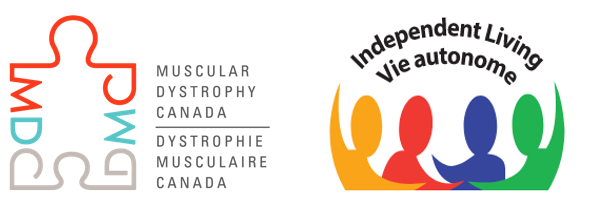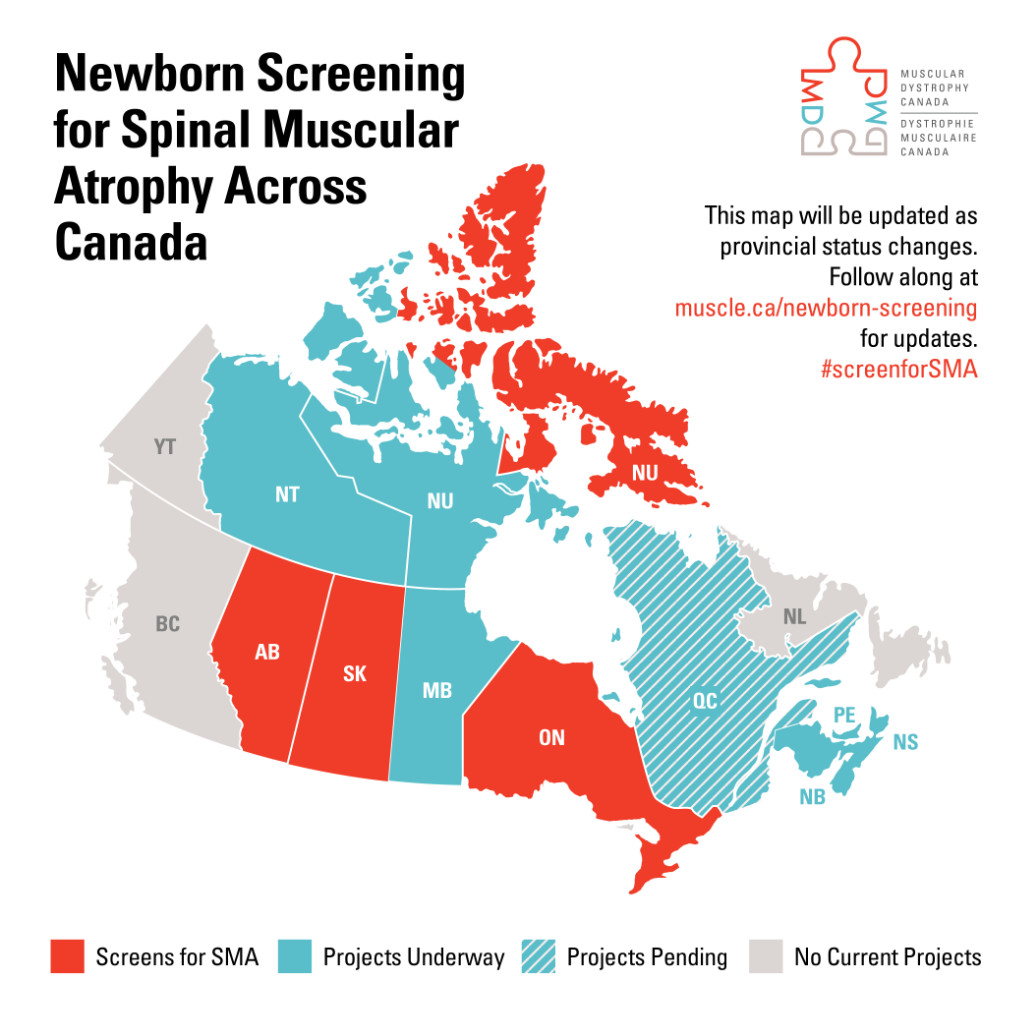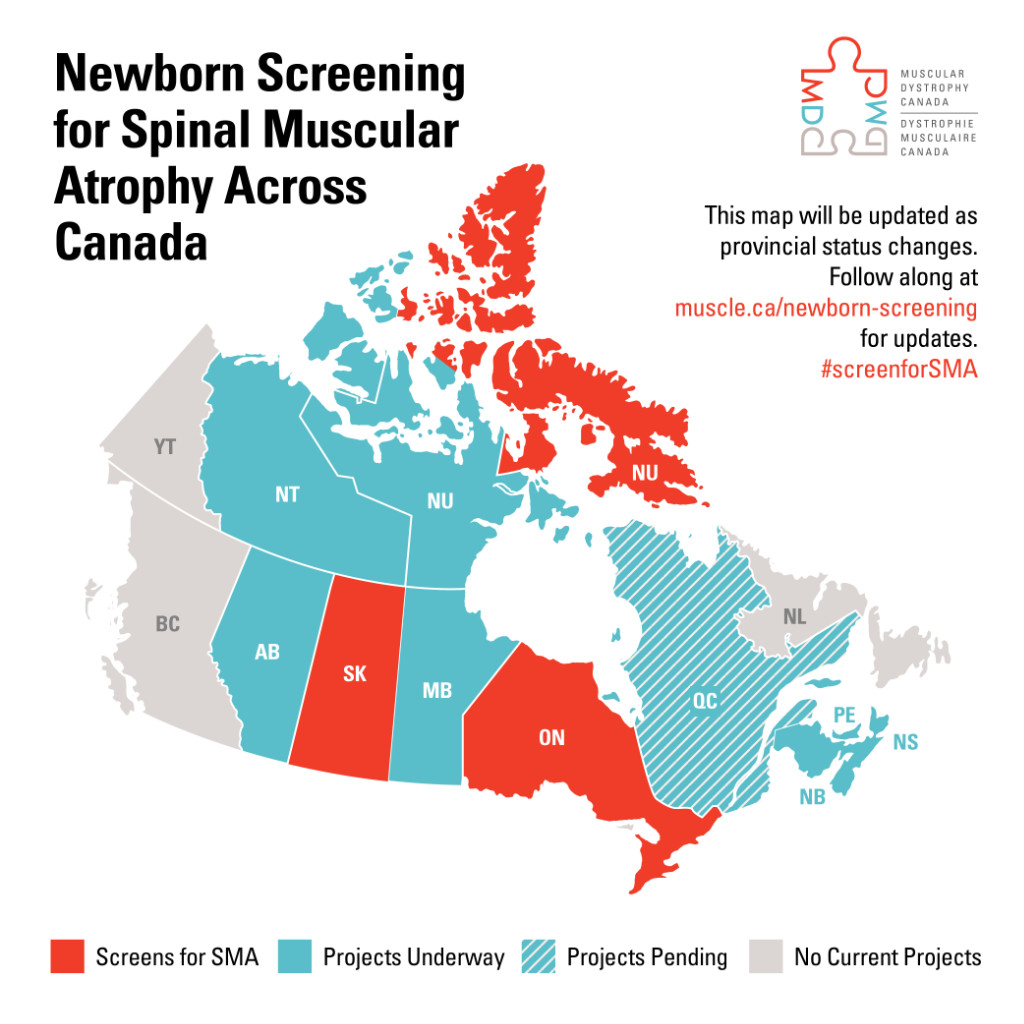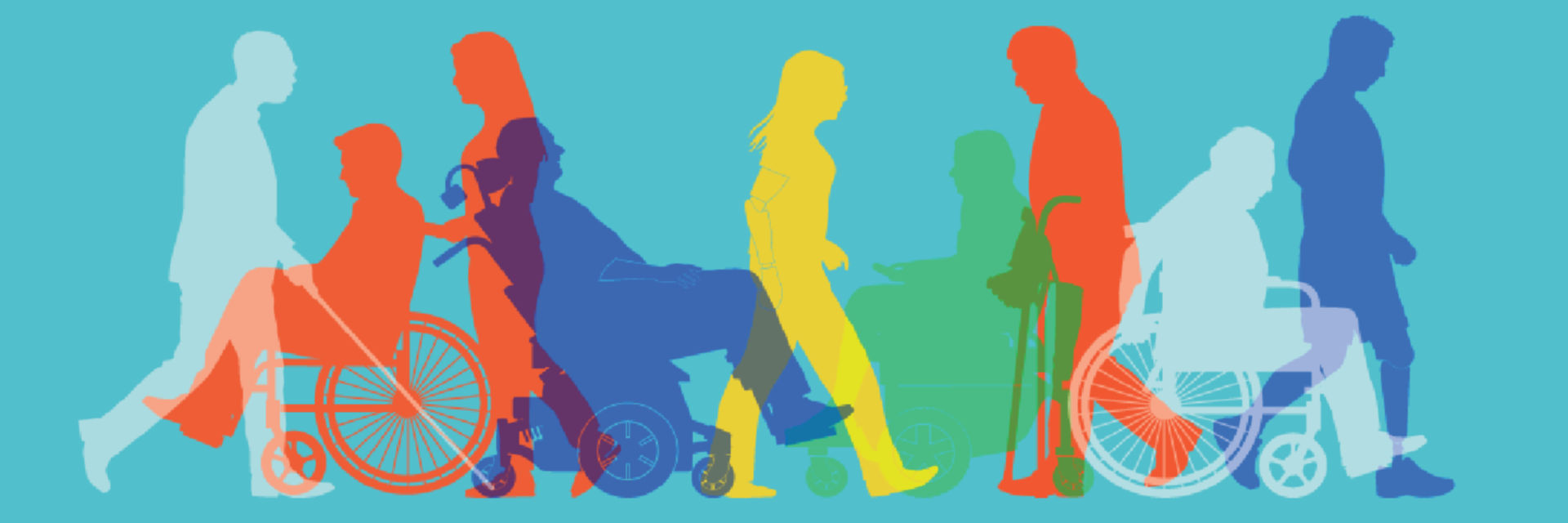Muscular Dystrophy Canada is overjoyed that babies born in British Columbia will now be screened for spinal muscular atrophy (SMA). Congratulations to the Government of B.C. on taking this important step that will lead to early diagnosis and treatments that will have life-changing results for individuals and families. Access to the earliest diagnosis will ensure that patients have access to the right treatment and healthcare at the right time, resulting in the best health outcomes for patients.
Celebrating the heart and soul of the Canadian neuromuscular disorder community
At Muscular Dystrophy Canada (MDC) we value the incredible community across the country who champion our mission with courage, determination, and passion. Through the Dr. David Green Awards program, we recognize and celebrate these incredible groups and individuals each year.
We are excited to announce the list of our esteemed 2022 award winners. These individuals show extraordinary commitment to raising funds, increasing awareness and advocating for the neuromuscular disorder (NMD) community, supporting continued research, engaging other community members and building positive connections.
“MDC is extremely fortunate to have such incredible individuals and groups committed to supporting our mission and the Canadian NMD community,” says Stacey Lintern, CEO, Muscular Dystrophy Canada. “Volunteers are the backbone of our organization. They fundraise, share creative ideas, give their time, contribute their experiences and help to advance advocacy efforts, research and programs and services. Thank you doesn’t even begin to cover just how appreciative we are for each and every one of this year’s recipients.”
2022 Dr. David Green Award recipients
Quebec announces policy on rare diseases
Muscular Dystrophy Canada applauds the Quebec government for leading the way towards a rare disease strategy for Canadians by announcing its own rare disease policy.
The Minister of Health and Social Services, Christian Dubé, announced the establishment of the first Quebec policy for rare diseases on June 6, 2022. The policy aims to optimize the accessibility of quality health care and services that are safe, fair, inclusive and adapted to the specific needs of patients with rare diseases and their families.
“This is a great step forward for the rare disease community, and will perhaps motivate other provinces to do the same,” said Stacey Lintern, CEO, Muscular Dystrophy Canada. “Having our provinces prioritizing and working on rare disease policies, and collaborating with each other is the next big step towards developing a national rare disease strategy.”
Read the full release
(French only)
All Canadians deserve access to life-changing treatments
While therapies exist for spinal muscular atrophy (SMA), many of them are out of reach for adults. Recently, a CTV article featuring Nouma Hammash highlighted the disparity that exists depending on your age, and where you live in Canada.
“For instance, in Quebec and Saskatchewan MDC clients, like Nouma, have access to life-changing drugs. In other provinces and territories that is not the case. Muscular Dystrophy Canada (MDC) urges the government to give all adults access to these treatments because of the incredible outcomes that are possible,” said Stacey Lintern, CEO, Muscular Dystrophy Canada.
At a roundtable discussion, attended by twelve individuals affected by spinal muscular atrophy, from across the country, MDC heard that geographic location, age, lack of qualitative data and a piece-meal approach by governments all prevent Canadian adults from accessing treatments that could radically improve their quality of life.
“In a neuromuscular disorder like SMA, access to treatments are critical to achieving the best possible outcomes. For Canadians affected, it can mean the difference in how quickly a condition progresses and as a result, the way they walk, feed themselves and for some even breathe,” said Homira Osman, VP, Research and Public Policy, Muscular Dystrophy Canada.
If you would like to learn more about treatments and how to access them, please contact the Research Hotline at: research@muscle.ca.
You can also find information about access to treatments and submissions to government here: muscle.ca/services-support/advocacy/access-to-treatments
Disability Inclusion Action Plan consultations set to begin in May

Friday, May 6, 2022
Muscular Dystrophy Canada and Independent Living Canada are pleased to announce that consultations for the Disability Inclusion Action Plan, as part of their project “Bridging the Gap: Between a Lived Experiences and Policy: A Community-Led, Capacity Building and Knowledge-Exchange Approach to the Disability Inclusion Action Plan” funded through Employment and Social Development Canada (ESDC), begin this May!
The Pillar Leads together with their supporting organizations have been working diligently to roll-out consultations to ensure we reach out to persons with a lived experience of a disability, individuals with a disability, and hard-to-reach marginalized, intersectional, under-represented groups and stakeholders.
Accessibility is a key priority, and all consultations will be held in an accessible and safe environment.
For more information about the project:
If you’d like to take part in the consultations, please contact DIAP Project Co-ordinator Catherine MacKinnon at: diap@ilc-vac.ca
Announcing Muscular Dystrophy Canada’s 2022 Research Grant Competition winners!
We are pleased to share that we are funding nine new clinical and translational science research projects focusing on spinal muscular atrophy, Duchenne and Becker muscular dystrophies, immune mediated neuropathies, congenital myasthenic syndromes, immune-mediated neuromuscular junction disorders, myotonic dystrophy, occulopharyngeal muscular dystrophy, spinal bulbar muscular atrophy (Kennedy disease), and other related neuromuscular disorders.
Thank you to our donors who helped make this possible and to our Research Grant Review Panels of researchers, clinicians and community members with lived experience who volunteered their time to carefully review and help narrow down applications to our final projects.
“Through these exciting projects, these talented and dedicated Canadian researchers will develop new methods for disease diagnosis, uncover novel insight into disease pathogenesis, and develop new treatments options, amongst other meritorious projects,” says Dr. Robin Parks, Chair of the Medical and Scientific Advisory Committee for Muscular Dystrophy Canada (MDC) and Chair of the Translational Science Review Panel. “Through their support of MDC, donors, patients and their families are helping fund outstanding research projects that will move neuromuscular research forward and ultimately improve care and quality of life for those affected by neuromuscular disorders – which aligns with MDC’s mission.”
“We are extremely pleased with breadth of proposals received to our call for clinical and translational science research proposals we received this year. This is a hopeful sign of the continued momentum and progress in neuromuscular research. The nine selected recipients show exemplary innovation, dedication and promise of potential impact for a wide range of neuromuscular disorders,” says Stacey Lintern, CEO of Muscular Dystrophy Canada. “Because of our incredible community, we are able to fill a critical gap in research funding. We know how much change is possible from Canadian researchers and we are continually working with our supporters to ensure we invest in meaningful ways.”
Thank you to the Canadian neuromuscular research community for putting forward impactful applications.
2022-2023 WINNERS:
- Dr. Thomas Durcan, MD, The Royal Institution for the Advancement of Learning/McGill University
Building a screenable human 3D neuromuscular junction model for neuromuscular disorders - Dr. Christopher Perry, MD, York University
Mitochondrial-targeted therapies to improve Duchenne muscular dystrophy outcomes - Dr. Craig Campbell, MD, London Health Sciences Centre Research Inc. (Lawson Health Research Institute)
Genome-wide DNA methylation profile in Duchenne Muscular Dystrophy - Dr. Michael Berger, MD, University of British Columbia
Measuring balance in chronic inflammatory demyelinating polyneuropathy - Dr. Bernard Jasmin, MD, University of Ottawa
Endurance training as a novel therapeutic strategy for Myotonic Dystrophy type 1 - Dr. Jodi Warman-Chardon, MD, Ottawa Hospital Research Institute
QP-OPMD: Quantitative MRI Imaging to Assess Progression in Oculopharyngeal Muscular Dystrophy - Dr. Kerri Schellenberg, MD, The University of Saskatchewan
Exploring the impact of Spinal Bulbar Muscular Atrophy on persons self-identifying as Indigenous - Dr. Reshma Amin, MD, The Hospital for Sick Children Dr. Aaron Izenberg, MD, Sunnybrook Health Sciences Centre
The Transition of TEENagers with Spinal Muscular Atrophy to a Multi-Disciplinary Adult Program - Dr. Maryam Oskoui, MD, The Research Institute of the McGill University Health Centre
Motor network connectivity in spinal muscular atrophy: new pathways for intervention
Important Update on Phone Solicitations
Muscular Dystrophy Canada does not use telemarketing services. You can support Fire Fighters and help them Fill the Boot for Muscular Dystrophy Canada and the individuals and families affected by neuromuscular disorders by going to filltheboot.ca.
STATEMENT REGARDING PHONE SOLICITATIONS
Several years ago, the Canadian Fire Fighter Curling Association (CFFCA) retained a telemarketing company to assist in fundraising for their annual curling event. A portion of the funds raised in past years were donated to MDC.
Muscular Dystrophy Canada can confirm a campaign soliciting donations for the Canadian Fire Fighter Curling Association has begun, seeking donations that support the Canadian Fire Fighter Curling Association.
In the past, we received complaints regarding the tone and approach of these solicitation calls and brought this to the attention of the CFFCA President.
Should you have any concerns or questions please contact the Canadian Fire Fighter Curling Association directly at cffca.ca.
We sincerely thank all of our generous supporters for making our work possible. Again, to help Fire Fighters #filltheboot go to filltheboot.ca.
New Ontario-led project to have national impact on newborn screening
Toronto, ON, March 9, 2022 – Muscular Dystrophy Canada (MDC) is proud to announce funding for a first-of-its-kind project to evaluate the cost-effectiveness of newborn screening (NBS) for spinal muscular atrophy (SMA) in Canada, including early treatment. The innovative national project led by a team at the Children’s Hospital of Eastern Ontario (CHEO) will provide vital evidence for policy and decision makers and is expected to help expedite implementation of screening for SMA across the country.
“Discussions on adding new disorders to NBS panels often come down to cost and cost effectiveness: how much will screening for ‘X’ benefit patients and how does that compare to the health system costs? Unfortunately, Canadian health economic analyses are often not available to help answer this question. Our work will generate important information to support newborn screening policy decision making in Canada,” said Dr. Chakraborty, Medical Director of Newborn Screening Ontario (NSO) and project lead.
Today’s announcement is part of MDC’s collaboration with Novartis Pharmaceuticals Canada Inc. (Novartis) to make newborn screening for SMA a national reality. With Alberta and Saskatchewan recently initiating screening for SMA, the focus is now on full-implementation and providing information to support long-term sustainability of all projects.
“Generating this data will not only provide policy and decision makers the evidence they need to make NBS for SMA a national standard, but will also help foster collaboration and exchange of information across the country and can ultimately inform Canada’s Rare Disease Strategy” said Stacy Lintern, CEO, Muscular Dystrophy Canada. “We’re thrilled to be working with Novartis, committed government leaders, the SMA community and MDC’s dedicated Board of Directors, Fire Fighters, clients, donors and supporters to ensure all Canadians have access to the same healthcare, regardless of where they live.”
Access to newborn screening varies widely from province to province. In a progressive neuromuscular disorder like SMA, early diagnosis and prompt access to treatments lead to the best possible outcomes.
“Relocating during pregnancy opened my eyes to the existence of postal code healthcare in Canada,” said Lindsay Williamson, whose son Mason was diagnosed in 2021 with SMA at one month old. “Had we not moved from Ontario for work, our son’s condition would have been promptly picked up during newborn screening. This blood spot would have eliminated the need for a battery of costly medical tests and mitigated the stress of the diagnostic experience. I have no doubt this project will help guarantee families like ours get the information they need from day one.”
Further information on the impact of newborn screening for SMA and the projects funded to date is available at muscle.ca/services-support/newborn-screening/.
About Muscular Dystrophy Canada
Muscular Dystrophy Canada’s mission is to enhance the lives of those affected with neuromuscular disorders by continually working to provide ongoing support and resources while relentlessly searching for a cure through well-funded research. To learn more about Muscular Dystrophy Canada, please explore our website or call our toll-free number at 1-800-567-2873.
-30-
For more information:
Heather Riceheather.rice@muscle.ca
902-440-3714
Newborns in Alberta can get screened for spinal muscular atrophy as part of pilot project with MDC
Statement from Stacey Lintern, Chief Executive Officer, Muscular Dystrophy Canada
February 28, 2022 – On this Rare Disease Day, MDC extends congratulations to Alberta on taking this important next step towards screening newborns for spinal muscular atrophy. Albertans will now have access to early diagnosis and treatments that will have life-changing results for individuals and families. This would not be possible without the partnership of Love for Lewiston for championing this important cause and helping influence positive change. Muscular Dystrophy Canada continues to work diligently with donors, provincial governments, partners and supporters to remove barriers so that screening for SMA becomes a reality across Canada.
If you would like to join Muscular Dystrophy Canada with ensuring Canadian babies have access to timely diagnosis and early access to care and treatment we would welcome your support. To learn more visit muscle.ca/services-support/newborn-screening/

Saskatchewan expanding newborn screening for Spinal Muscular Atrophy (SMA)
Statement from Stacey Lintern, Chief Executive Officer, Muscular Dystrophy Canada
Muscular Dystrophy Canada continues to work diligently with donors, provincial governments, partners and supporters to remove barriers so that screening for SMA in Canada is a reality. Growing evidence shows the profound impact newborn screening has on the quality of lives of children born with SMA, and their families. We know that for children affected by SMA, promising outcomes are possible with a timely diagnosis and early access to specialized care and treatment.
We applaud Saskatchewan for recognizing this and expanding their newborn screening panel to include testing for SMA as part of its newborn screening program.
To learn more about SMA newborn screening please visit muscle.ca/services-support/newborn-screening.
If you would like to join Muscular Dystrophy Canada with ensuring Canadian babies have access to timely diagnosis and early access to care and treatment we would welcome your support.

For more information, contact:
Stacey LinternCEO, Muscular Dystrophy Canada
647-284-8706
Stacey.Lintern@muscle.ca









